|
29
MAR
2015
|
|
|
|
For the last four years the PDSA in UK has published the PDSA Annual Well-being Report (PAW Report for short). It covers cats, dogs and rabbits and looks at welfare issues by asking pet owners and vets questions about care and welfare. It’s great to have these stats on things like how many rabbits are neutered and whether they get an appropriate diet because it helps welfare campaigners monitor how successful they are at implementing changes and also where to target change.
So, on to this years report. Here is a handy graphically summary (feel free to share):
One of the biggest changes is the rapid decline in muesli based dry foods. In the last four years it’s dropped from being eaten by 49% to 25% of rabbits in UK. Interestingly it’s been a sustained change, continuing this year, not just a short term reaction to media coverage.
On the other hand in the last year there hasn’t been much progress on hay eating; the percentage not .. [More]
|
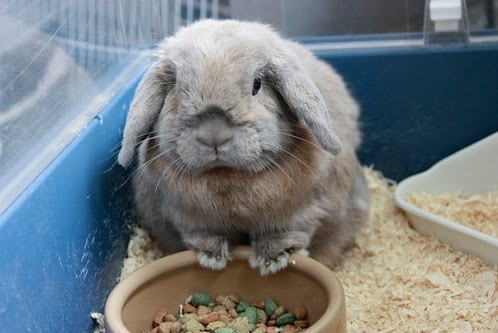
|
|
|
Tags :
Rapid Decline of Muesli Dry Foods , Pet Rabbit Food South Africa , Russel Rabbit South Africa
|
|
|
|
22
MAR
2015
|
|
|
|
No matter what size our pets are, like any human they can get bored. It’s important to provide them with plenty of enrichment activities to keep them entertained as well as the added bonus of strengthening your bond with them!
Whatever you decide to play with them, make sure it’s fun for the both of you. Never force your fur friends into taking part if they don’t seem interested. There are certain times of the day that different pets are more active. Gerbils, hamsters and rats are more active at dawn and dusk. Take their sleeping schedule into consideration when you decide to introduce them to new enrichment activities to understand when they will most likely want to play.
Just to make things easier for you, we’ve put our heads together in the office and made up a list of the best activities you can do with your small pets. Enjoy!
1. Training
Training your pets can be perfect for both physical and mental enrichment. Every pet has the cap.. [More]
|
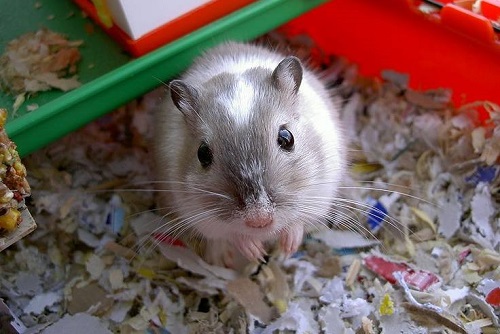
|
|
|
Tags :
Playing With Small Pets In South Africa
|
|
|
|
22
MAR
2015
|
|
|
|
Guinea pigs' teeth grow continuously throughout their life, so they need to chew regularly to keep their teeth down to a healthy size. Chewing on their cage bars could mean they do not have enough things to chew on, but most likely they simply enjoy the feeling of the metal bars.
Why Guinea Pigs Chew
Guinea pigs are born with a natural instinct to chew. Their teeth grow continually throughout their life and chewing keeps them at a healthy length. If guinea pigs are not given enough things to chew on, they will begin chewing on items like their cage bars. If your guinea pig is chewing on her cage bars, there is no need to be alarmed. It could mean that she simply enjoys the sensation that it provides. As long as she has plenty of other chew toys designed for chewing and gnawing, your guinea pig is probably very content.
Chewing, Treats and Interaction
One fun way to get some interaction in with your guinea pigs in addition to satisfying their need to chew and p.. [More]
|
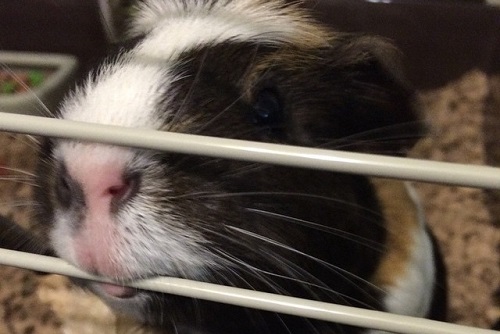
|
|
|
Tags :
Why Do Guinea Pigs Chew Their Cage South Africa? , Gunea Pig Cages South Africa , Guinea Pig Care South Africa
|
|
|
|
18
JAN
2015
|
|
|
|
Our pets really are our best friends. They are loyal, pass no judgement, and they are there in times of need, so it’s no surprise that some of us feel closer to our pets than we do human beings. This is why it isn’t strange for people to experience intense grief at the loss of a pet, often rivalling the loss of friend or family member, please be assured that these feelings are completely normal.
What makes it difficult to cope with the loss of a terminally ill animal is that they are unable to understand the process of dying, we are only able to communicate with them to a certain extent. When humans fall terminally ill they are able to have conversations with friends and family and this is a form of closure for their loved ones.
Losing a pet is truly a heart breaking thing to happen so here are a few ways in which pet owners can help themselves, and others, to carry on after the death of a family pet.
1. Stick to your routine as much as possible .. [More]
|

|
|
|
Tags :
Coping With The Loss Of A Pet
|
|
|
|
15
JAN
2015
|
|
|
|
It’s not like any of us need an excuse to look at photos of adorable guinea pigs… But we thought that some of these rarer breeds should get a little bit more love today! After scrolling through the expanse of the internet, here are our 5 favourite unusual guinea pig breeds which you may not have heard of.
1. Texel Guinea Pig
The Texel breed caught our eyes immediately with its distinctive curly, long haired coat. However this amount of hair also makes the Texel a high maintenance pig; requiring a lot of grooming to keep up that coat in tip top shape. This breed was only recognised in 1998 and originates from the UK.
2. Peruvian Guinea Pig
The Peruvian pig were originally a wild breed in (you guessed it!) Peru. Although known for their long hair, the Peruvian is born with short hair which grows as they age. Again, these pigs need a lot of care and attention due to the grooming needs of their locks – which can grow to a whopping 20 inc.. [More]
|
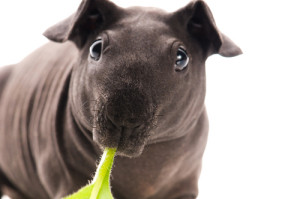
|
|
|
Tags :
Five Most Unusual Guinea Pig Breeds
|
|
|
|
11
DEC
2014
|
|
|
|
Guinea pigs (which are also called cavies) are remarkable pets to have. They are quite funny and charming most of the time, even when they are hiding (perhaps, especially when they are hiding). With adorable faces and long, round bodies, it is little wonder that guinea pigs have captured our attention and found a way into our hearts.
But, although they are small, guinea pigs are still pets, and that means that they need some loving attention from their owners. The biggest hurdle is, of course, ensuring that your guinea pigs have a comfortable home that is both snuggly, but not in the sun – and airy, but not in any draughts. And, once you have this right, you are well on your way to providing your pets with the best home possible. After that it is mostly a matter of feeding your guinea pigs the best possible diet and then… enjoying them as they play.
Guinea Pigs Are Fibrevores
As you learned in school, some animals are herbivores; some are (us.. [More]
|
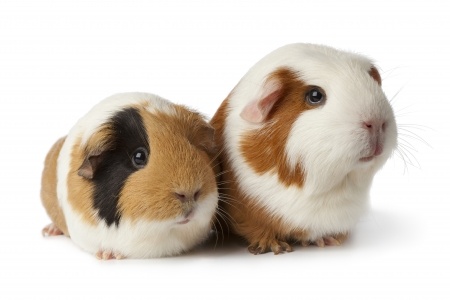
|
|
|
Tags :
Feeding Your Guinea Pigs
|
|
|
|
06
DEC
2014
|
|
|
|
Why Do You Need to Groom Your Guinea Pigs and How Often? Long haired guinea pigs offer a convenient hiding place for mites and other parasites. It’s just so easy to snuggle into their hair and so difficult for other guinea pigs to take care of these pests. Besides mites and lice, long haired guinea pigs battle with knotted fur which can become dangerous for them. And, with all that hair, it’s easy for all sorts of dirt and debris to remain on your piggy. And that never smells good.
Your long haired guinea pigs need your help with a monthly bath and grooming session. If you notice that your piggy needs it more often, then do it. Don’t forget that you may need to pull out the comb or scissors a little more frequently if you spot tangles and troubles.
How Do You Give a Guinea Pig a Grooming Bath?
The short answer to this is… very carefully. It’s important to bear in mind that you should only ever bathe your guinea pigs if absolutely .. [More]
|
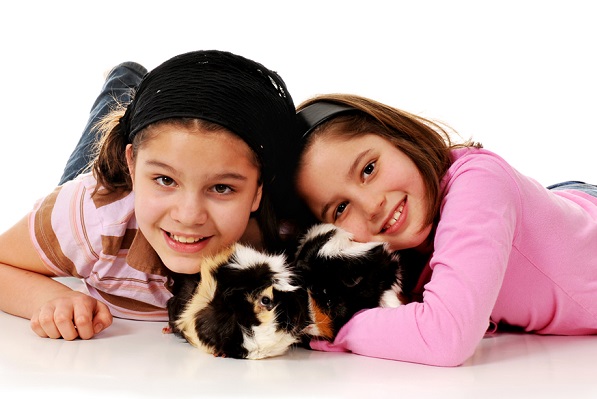
|
|
|
Tags :
Grooming Long Haired Guinea Pigs
|
|
|
|
12
SEP
2014
|
|
|
|
Many homes are simply not complete without a few pets around. And, not every pet is a cat or a dog. There are many, many different pets that people can keep in their homes. Each one of them has special needs and dietary requirements. And, feeding your pets the right food – and the right amount of food is paramount to their continued health. Indeed, it is one of the things you’ll need to consider long before you bring home your pets. Otherwise, you’ll run the risk of them falling ill – or worse.
Keep in mind, that with all the different needs that every pet has, they don’t all need dry food. While this may be the best bet for your dogs and cats, other animals require different foods. Sometimes, those foods may seem rather boring to you, such as Timothy Hay, but they are essential to some animals.
Who Eats Timothy Hay?
Some animals are carnivores (or rather, omnivores) and some that are strictly vegetarian. Within that latter group a.. [More]
|
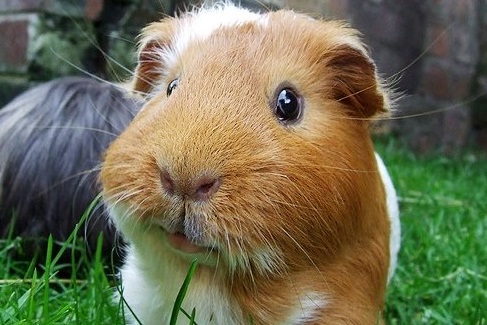
|
|
|
Tags :
Guide To Feeding Hay To Fibrevores , Pet Guinea Pig Food South Africa , Pet Rabbit Food South Africa , Chinchilla Food South Africa , Timothy Hay South Africa
|
|
|
|
02
SEP
2014
|
|
|
|
How well do you know the signs of rodent respiratory disease? Read our guide and the 7 must know treatments. Respiratory infections in rodents are common, primarily in rats, mice and guinea pigs. We rarely see respiratory issues in gerbils and degus. Check you know how to spot the signs and what to do.
Signs of respiratory problems
Weight loss – always make sure you check the weight of small mammals in the clinic. Do you have mini-scales capable of weighing to the nearest gram?
Loss of appetite or anorexia – check how much has been eaten, not just how much is fed/offered.
Poor coat condition – look for a dry, matted, clumped, scurfy or greasy coat.
Discharge from eyes or nostrils – often seen as a red discharge. This colour change is the result of porphyrin pigments.
Sneezing – has the owner noticed a watery, purulent or bloody discharge?
Br.. [More]
|
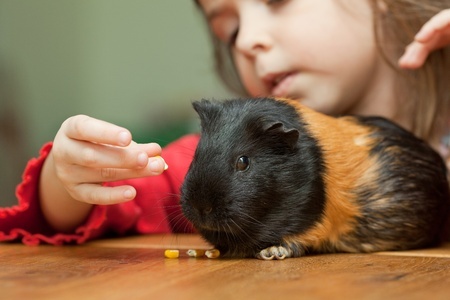
|
|
|
Tags :
Signs of Rodent Respiratory Disease
|
|
|
|
30
AUG
2014
|
|
|
|
It’s funny how some of the most iconic stories and images we have in our minds of rabbits involve them eating vegetables (think Peter Rabbit or Bugs Bunny). They certainly do love treats like carrot tops, but these are treats only. Rabbits, like other fibrevores, need a great deal more than vegetables to survive. And mostly what they need are grasses and hay.
Who and What Are Fibrevores?
Fibrevores is a bit of a funny term isn’t it? And, it’s hardly one of the terms we learn in school; instead we’re treated to carnivores, herbivores and omnivores. So, let’s work with what we know. Fibrevores are herbivores – they don’t eat any meat. But, they’re a tad more specialised than that. They have developed a strong, overwhelming need for fibre.
Fibre, of course, is found in grains and grasses. Of course, we have it added to some of our foods to keep us moving, but for the most part, fibrevores get their daily intake of fibre .. [More]
|
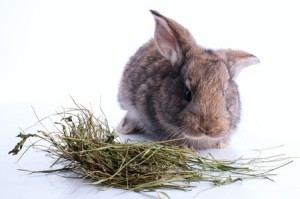
|
|
|
Tags :
A Quick Guide to Feeding Hay , Feeding Hay in South Africa , Timothy Hay South Africa , Rabbit Food South Africa , Guinea pig food south africa , chinchilla food south africa
|
|
|
|
|
|
Category List
|
|
|
|
|
|
Archive List
|
2025 2023 2022 2021 2020 2019 2018 2017 2016 2015 2014 |
|
|